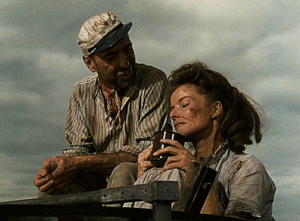Desert Victory (1943)

…………………………………………………
Desert Victory Movie Review
Desert Victory is a 1943 documentary film produced by the British Ministry of Information and directed by Roy Boulting. It is a slim, but important for its time doc.
………………………………………………….
“The Eighth Army has the longest lines of supply
that the history of war has ever known“
…………………………………………………..
…………………………………………………..
The Allied campaign to drive Germany and Italy from North Africa is analyzed here, with the major portion of the film examining the battles at El Alamein, including a full on re-enactment. A little bit of history is in order here, and I mean movie history. In 1942 the Academy introduced for the first time the Best Documentary category, which ended in a four-way tie that year for some reason.
In the second year of this category, Desert Victory ended up winning for obvious reasons. It was a documentary about WWII, so of course it appealed to Academy voters. The movie itself is fine, its quality is okay and nothing here is particularly bad, but it’s just that it has been lost to history for many very easy to understand reasons.
The runtime of one hour is overly slim and yet the movie still felt too long because it was overly repetitive throughout. The final section with the footage of Hitler was definitely the most interesting part of the story and the speech at the end along with that imagery meant to inspire people was definitely memorable.
But the rest of the picture was highly forgettable. Not a lot of insight was given on Erwin Rommel, which was disappointing as he was such a fascinating figure in German history. The African campaign was here explained, but only briefly. Most of the movie is devoted to that battle re-enactment and I wish that they tried to give us more facts about the battle.
…………………………………………………..
…………………………………………………..
But that visual emphasis led to solid technical aspects as Desert Victory looks pretty cool and advances for its time with great photography, sound and fascinating real-life footage. It’s a propaganda movie through and through, but it could have been much worse. I found it to be serviceable and I can certainly see why it would win the documentary award back in 1944.





